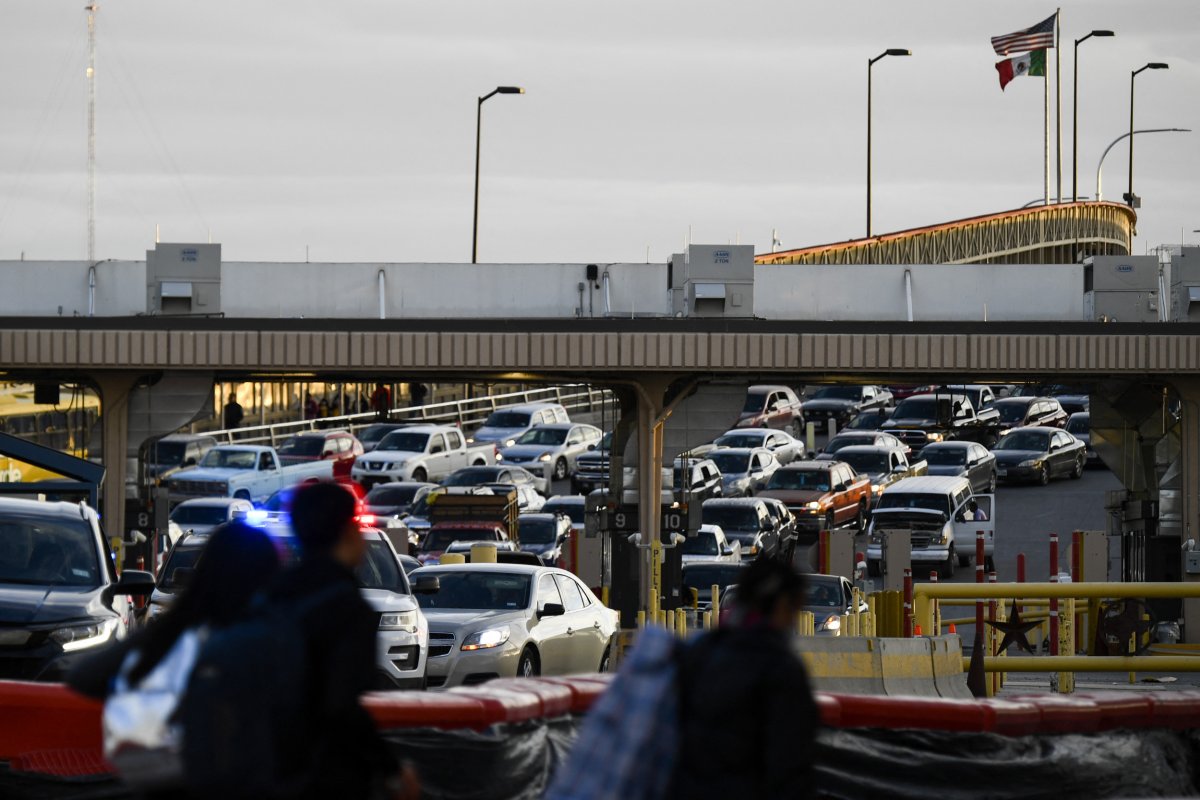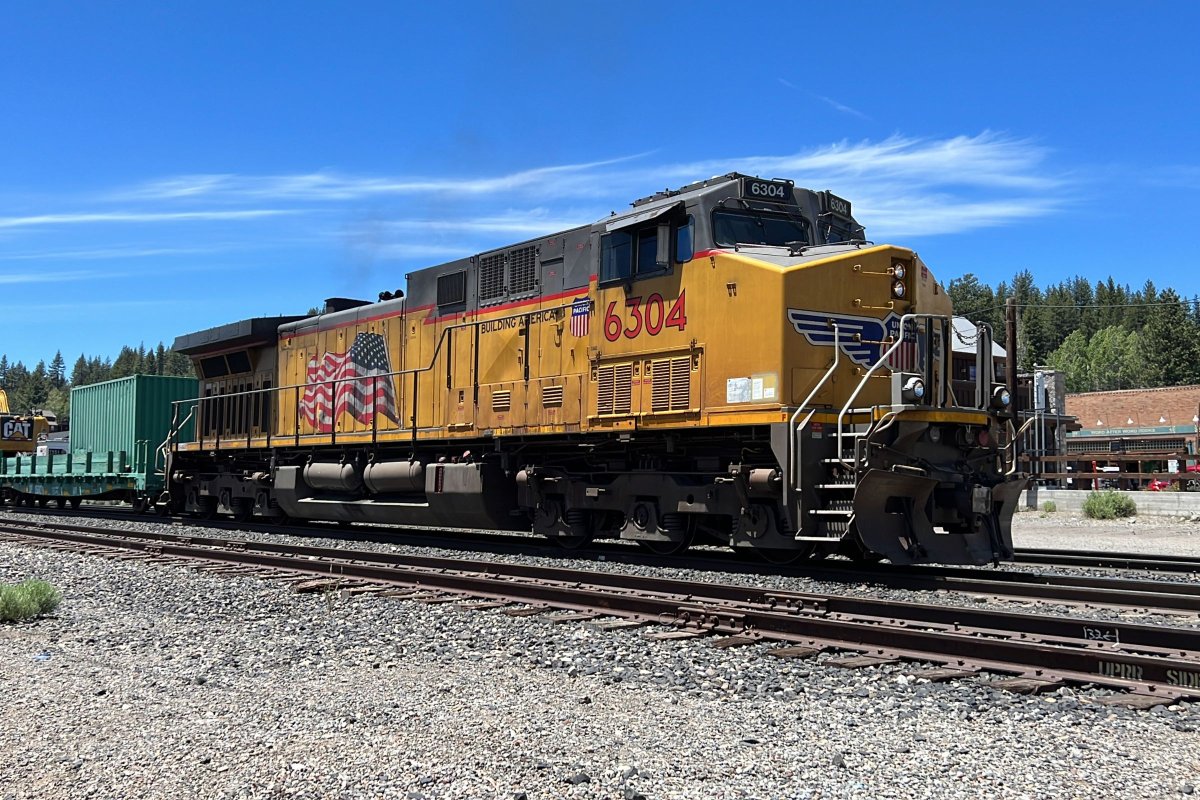The decision to close bridges to stop smuggling across the U.S.-Mexico border is having unwanted impact on the railroad network, rail companies said.
Two international railway crossing bridges in Texas—one in Eagle Pass, which is the second-busiest rail crossing between the two countries, and the other El Paso—were temporarily shut down on Monday after federal authorities reported a surge in the smuggling of migrants through Mexico by train.
Border officials said the bridges were closed "in order to redirect personnel to assist the U.S. Border Patrol with taking migrants into custody." U.S. Customs and Border Protection (CBP) said that the operation was being conducted in partnership with Mexican authorities.
But the closure has negatively affected rail companies Union Pacific (UP) and BNSF, which use the bridges, and impacted the 24 trains a day that run across the border at those points, according to The Load Star.

UP told the publication that the closure has stranded nearly 10,000 rail cars on both sides of the border and that it had to embargo bookings on more than 60 trains on every day of the closure.
Ian Jefferies, president and CEO of the Association of American Railroads (AAR), said the closure was affecting every railroad in the country.
"Ultimately every railroad is affected, since all carriers interchange goods across the North American rail network," he said. "The urgency of reopening these crossings and restoring rail service between the two nations cannot be overstated.
"There are no separate US and Mexican rail networks; there is only one interconnected North American rail network. Every day the border remains closed unleashes a cascade of delay across operations on both sides of the border, impacting customers and, ultimately, consumers."
Newsweek reached out to the White House by email for comment.
UP added on X, formerly Twitter: "These locations handle roughly 45 percent of the goods critical to the US economy, and there isn't enough capacity at our other four gateways to reroute them."
The company wrote that, while it understands "this is a complex humanitarian crisis, most migrants are not crossing the border on trains." Union Pacific has its own police force and technology looking for people and contraband, the company added.
"Every day that the border is closed, Union Pacific is forced to embargo customers' goods on more than 60 trains, or nearly 4,500 rail cars, with an equivalent of goods being held in Mexico," the company said. "The longer this closure is in effect, the more difficult it will be for cross-border trade to resume."
The closure comes as immigration and the border have emerged as a key political issue ahead of next year's presidential election, with President Joe Biden facing bipartisan backlash over soaring number of migrants entering the country. There were more than 2.475 million encounters at the southern border in fiscal year 2023, an increase from about 2.378 million in fiscal year 2022, according to data from CBP.

Democratic Representative Henry Cuellar of Texas said shutting down the bridges disrupted legitimate trade and hurt communities at the border.
"The crisis at our border is seriously affecting legitimate trade," Cuellar wrote on X. "This year alone, vehicle and rail operations have been suspended at multiple ports of entry due to an overwhelming number of migrants, worsening delays for truck drivers transporting goods and costing our economy millions.
"Our border communities desperately need more federal resources, and we need tougher measures at the border. We must secure the border now."
Uncommon Knowledge
Newsweek is committed to challenging conventional wisdom and finding connections in the search for common ground.
Newsweek is committed to challenging conventional wisdom and finding connections in the search for common ground.
About the writer
Kate Plummer is a Newsweek reporter based in London, U.K. Her focus is on U.S. politics and national affairs, and ... Read more
To read how Newsweek uses AI as a newsroom tool, Click here.








